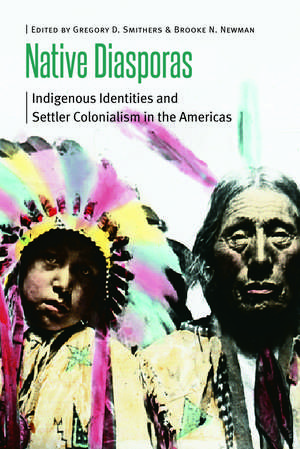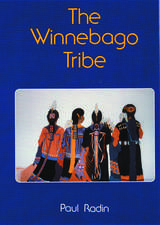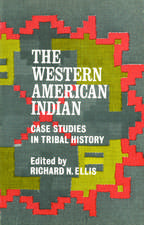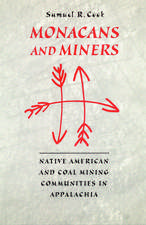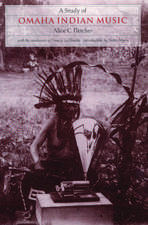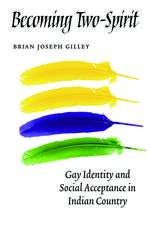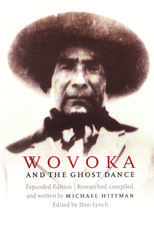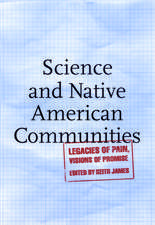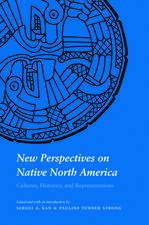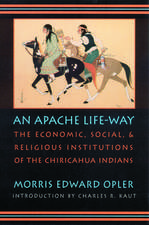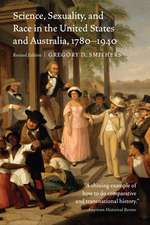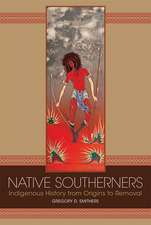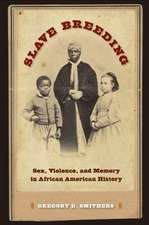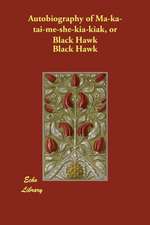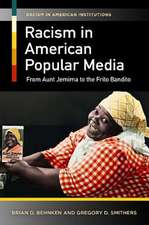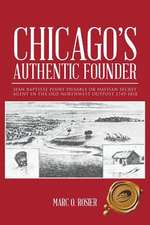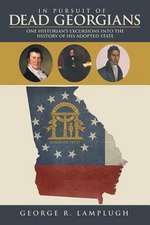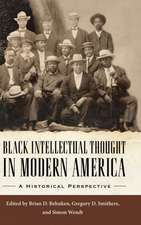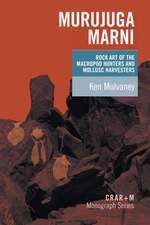Native Diasporas: Indigenous Identities and Settler Colonialism in the Americas: Borderlands and Transcultural Studies
Editat de Gregory D. Smithers, Brooke N. Newmanen Limba Engleză Paperback – iun 2014
The arrival of European settlers in the Americas disrupted indigenous lifeways, and the effects of colonialism shattered Native communities. Forced migration and human trafficking created a diaspora of cultures, languages, and people. Gregory D. Smithers and Brooke N. Newman have gathered the work of leading scholars, including Bill Anthes, Duane Champagne, Daniel Cobb, Donald Fixico, and Joy Porter, among others, in examining an expansive range of Native peoples and the extent of their influences through reaggregation. These diverse and wide-ranging essays uncover indigenous understandings of self-identification, community, and culture through the speeches, cultural products, intimate relations, and political and legal practices of Native peoples.
Native Diasporas explores how indigenous peoples forged a sense of identity and community amid the changes wrought by European colonialism in the Caribbean, the Pacific Islands, and the mainland Americas from the seventeenth through the twentieth century. Broad in scope and groundbreaking in the topics it explores, this volume presents fresh insights from scholars devoted to understanding Native American identity in meaningful and methodologically innovative ways.
Din seria Borderlands and Transcultural Studies
-
 Preț: 217.31 lei
Preț: 217.31 lei -
 Preț: 265.74 lei
Preț: 265.74 lei -
 Preț: 159.22 lei
Preț: 159.22 lei -
 Preț: 159.32 lei
Preț: 159.32 lei -
 Preț: 202.82 lei
Preț: 202.82 lei -
 Preț: 217.47 lei
Preț: 217.47 lei -
 Preț: 332.94 lei
Preț: 332.94 lei -
 Preț: 426.41 lei
Preț: 426.41 lei -
 Preț: 428.14 lei
Preț: 428.14 lei -
 Preț: 360.59 lei
Preț: 360.59 lei -
 Preț: 429.51 lei
Preț: 429.51 lei -
 Preț: 219.64 lei
Preț: 219.64 lei -
 Preț: 464.44 lei
Preț: 464.44 lei -
 Preț: 464.99 lei
Preț: 464.99 lei -
 Preț: 429.89 lei
Preț: 429.89 lei -
 Preț: 259.16 lei
Preț: 259.16 lei -
 Preț: 459.98 lei
Preț: 459.98 lei - 15%
 Preț: 452.68 lei
Preț: 452.68 lei -
 Preț: 300.32 lei
Preț: 300.32 lei -
 Preț: 512.19 lei
Preț: 512.19 lei -
 Preț: 214.80 lei
Preț: 214.80 lei -
 Preț: 508.71 lei
Preț: 508.71 lei -
 Preț: 497.83 lei
Preț: 497.83 lei -
 Preț: 458.45 lei
Preț: 458.45 lei
Preț: 334.30 lei
Nou
Puncte Express: 501
Preț estimativ în valută:
63.97€ • 66.66$ • 52.97£
63.97€ • 66.66$ • 52.97£
Carte tipărită la comandă
Livrare economică 03-17 aprilie
Preluare comenzi: 021 569.72.76
Specificații
ISBN-13: 9780803233638
ISBN-10: 0803233639
Pagini: 524
Ilustrații: 14 illustrations, index
Dimensiuni: 152 x 229 x 15 mm
Greutate: 0.71 kg
Editura: Nebraska Paperback
Colecția University of Nebraska Press
Seria Borderlands and Transcultural Studies
Locul publicării:United States
ISBN-10: 0803233639
Pagini: 524
Ilustrații: 14 illustrations, index
Dimensiuni: 152 x 229 x 15 mm
Greutate: 0.71 kg
Editura: Nebraska Paperback
Colecția University of Nebraska Press
Seria Borderlands and Transcultural Studies
Locul publicării:United States
Notă biografică
Gregory D. Smithers teaches history at Virginia Commonwealth University. He is the author of three books, including Science, Sexuality, and Race in the United States and Australia, 1780s–1890s. Brooke N. Newman is an assistant professor of history at Virginia Commonwealth University. Her articles have appeared in Gender and History and Slavery and Abolition.
Cuprins
List of Illustrations
Preface
Brooke N. Newman and Gregory D. Smithers
Introduction: “What Is an Indian?”—The Enduring Question of American Indian Identity
Gregory D. Smithers
Part 1. Adapting Indigenous Identities for the Colonial Diaspora
1. Indigenous Identities in Mesoamerica after the Spanish Conquest
Rebecca Horn
2. Rethinking the Middle Ground: French Colonialism and Indigenous Identities in the Pays d’en Haut
Michael A. McDonnell
3. Identity Articulated: British Settlers, Black Caribs, and the Politics of Indigeneity on St. Vincent, 1763–1797
Brooke N. Newman
4. Religion, Race, and the Formation of Pan-Indian Identities in the Brothertown Movement, 1700–1800
Linford D. Fisher
5. “Decoying Them Within”: Creek Gender Identities and the Subversion of Civilization
Felicity Donohoe
Part 2. Asserting Native Identities through Politics, Work, and Migration
6. Mastering Language: Liberty, Slavery, and Native Resistance in the Early Nineteenth-Century South
James Taylor Carson
7. Resistance and Removal: Yaqui and Navajo Identities in the Southwest Borderlands
Claudia B. Haake
8. Progressivism and Native American Self-Expression in the Late Nineteenth and Early Twentieth Century
Joy Porter
9. Mixed-Descent Indian Identity and Assimilation Policy
Katherine Ellinghaus
10. “All Go to the Hop Fields”: The Role of Migratory and Wage Labor in the Preservation of Indigenous Pacific Northwest Culture
Vera Parham
Part 3. Twentieth-Century Reflections on Indigenous and Pan-Indian Identities
11. Tribal Institution Building in the Twentieth Century
Duane Champagne
12. Disease and the “Other”: The Role of Medical Imperialism in Oceania
Kerri A. Inglis
13. “Why Injun Artist Me”: Acee Blue Eagle’s Diasporic Performative
Bill Anthes
14. Asserting a Global Indigenous Identity: Native Activism Before and After the Cold War
Daniel M. Cobb
15. From Tribal to Indian: American Indian Identity in the Twentieth Century
Donald Fixico
Contributors
Index
Preface
Brooke N. Newman and Gregory D. Smithers
Introduction: “What Is an Indian?”—The Enduring Question of American Indian Identity
Gregory D. Smithers
Part 1. Adapting Indigenous Identities for the Colonial Diaspora
1. Indigenous Identities in Mesoamerica after the Spanish Conquest
Rebecca Horn
2. Rethinking the Middle Ground: French Colonialism and Indigenous Identities in the Pays d’en Haut
Michael A. McDonnell
3. Identity Articulated: British Settlers, Black Caribs, and the Politics of Indigeneity on St. Vincent, 1763–1797
Brooke N. Newman
4. Religion, Race, and the Formation of Pan-Indian Identities in the Brothertown Movement, 1700–1800
Linford D. Fisher
5. “Decoying Them Within”: Creek Gender Identities and the Subversion of Civilization
Felicity Donohoe
Part 2. Asserting Native Identities through Politics, Work, and Migration
6. Mastering Language: Liberty, Slavery, and Native Resistance in the Early Nineteenth-Century South
James Taylor Carson
7. Resistance and Removal: Yaqui and Navajo Identities in the Southwest Borderlands
Claudia B. Haake
8. Progressivism and Native American Self-Expression in the Late Nineteenth and Early Twentieth Century
Joy Porter
9. Mixed-Descent Indian Identity and Assimilation Policy
Katherine Ellinghaus
10. “All Go to the Hop Fields”: The Role of Migratory and Wage Labor in the Preservation of Indigenous Pacific Northwest Culture
Vera Parham
Part 3. Twentieth-Century Reflections on Indigenous and Pan-Indian Identities
11. Tribal Institution Building in the Twentieth Century
Duane Champagne
12. Disease and the “Other”: The Role of Medical Imperialism in Oceania
Kerri A. Inglis
13. “Why Injun Artist Me”: Acee Blue Eagle’s Diasporic Performative
Bill Anthes
14. Asserting a Global Indigenous Identity: Native Activism Before and After the Cold War
Daniel M. Cobb
15. From Tribal to Indian: American Indian Identity in the Twentieth Century
Donald Fixico
Contributors
Index
Recenzii
"The essays in Native Diasporas offer fascinating case studies that simultaneously value local nuance and transnational/global contexualization across more than three centuries of history. They also offer fresh insights in the study of indigenous identities."—Joseph Genetin-Pilawa, Western Historical Quarterly
"This work will become a seminal text for people studying in the field."—Paul Moon, Te Kaharoa
"This text is not only a timely addition to the Native American/American Indian studies discourse, but it also introduces a fresh way of discussing indigeneity and the complicated experience of those communities impacted by settler colonialism."—Clementine Bordeaux, American Indian Culture and Research Journal
“The essays in Native Diasporas address a tremendously important and complicated subject—Indigenous identity.”—Barbara Krauthamer, author of Black Slaves, Indian Masters: Slavery, Emancipation, and Citizenship in the Native American South
“In a powerful and timely way, Native Diasporas moves away from the ‘frontier’ as finite and from the ‘middle ground’ as an endpoint. Its essays pay attention to women’s agency, gender issues, economic and political dynamics, the history of changing policies, and to Indigenous responses and engagements with settler colonialism.”—Ann McGrath, director of the Australian Centre for Indigenous History at Australian National University and coauthor of How to Write History that People Want to Read
